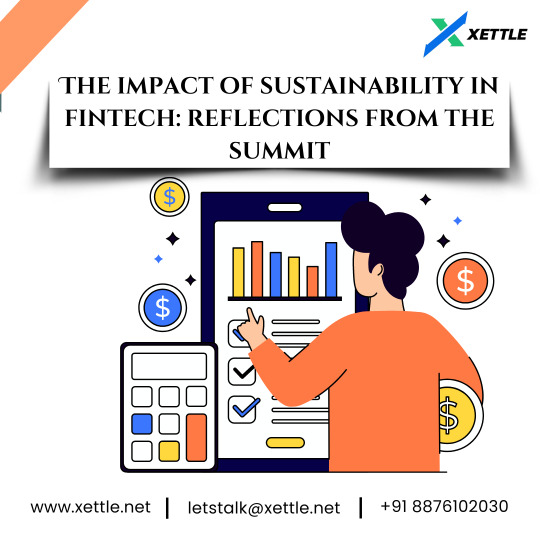#ESG data trends
Explore tagged Tumblr posts
Text
The Growing Demand for ESG Data: Trends and Market Outlook
Profitability is no longer the only method investors use to assess whether a business is a secure opportunity. With growing scrutiny around ethical organizational practices, the link between sustainable operations and 21st-century investors has never been stronger.
Businesses are now quick to incorporate ESG factors into their ethos. As a result, their impact on their surrounding environment propels further business growth and cements the business as a lucrative long-term investment.
How is ESG data used in investment decision-making?
The ESG (Environmental, Social and Governance) framework is utilized to understand an organization's activities and its understanding of ethical and sustainability concerns.
Environmental
When businesses account for Environmental factors, the organization understands how their day-to-day and long-term activities affect the surrounding environment. This includes understanding how processes negatively or positively impact global challenges such as climate change or communal issues such as waste management or pollution.
Social
Social factors help businesses introduce and sustain internal ethical practices to ensure stakeholders are treated fairly. Social factors ensure businesses do not propagate discriminatory practices and ensure all individuals are affected by organizational activities.
Governance
Governance factors ensure the business stays compliant with legal requirements and practices. This means incorporating recognized industry practices and policies into corporate culture and ensuring activities could not be scrutinized or fined at a later date.

Integration of ESG Factors in Investment Decision-Making
ESG is not just a buzzword. A growing number of investors are using ESG metrics as a non-financial metric to understand where potential risks lie and how strong prospects for growth are.
As of 2022, 89% of investors considered ESG data and issues in their investment approach. 31% of European investors and 18% of North American investors have revealed ESG data to be the most critical factor when considering investments.
Growing interest has prompted the development of a number of reputed institutions whose sole purpose is to standardize ESG assessment factors. As a result, the new era of investors is able to access information critical to their decision-making process and long/short-term goals.
The Role of Data Providers and Research Firms in the ESG Data Market
With the growing standardization of ESG assessment metrics, investors are looking to widely known data providers and research firms for validated information. Market Data providers such as Bloomberg and Thomson Reuters now offer information about ESG topics using proprietary methods. The data providers also offer businesses statistics around the social aspect of ESG, allowing them to better understand industry trends and changes to be made.
The rising demand for ESG information has also created specialized data suppliers. Companies, including Ethos and Convalence, offer end-to-end ESG data services. They customize their assessment techniques based on the information needed and assist investors with risk analysis tools for better decision-making.
Finally, specialized data providers help investors detect new opportunities or assess risk by offering comprehensive data around one or two ESG factors.
It is important to understand there is minimal information about how ESG factors directly affect finances. Data providers and research firms offer an abundance of verified supplementary information to prevent irrelevant comparisons and account for disparities.

Emerging Trends in ESG Data and Reporting
The growing popularity of ESG investing has risen to assets worth USD $2.5 trillion as of 2022. Observing ESG data trends and market trends simultaneously allows investors to minimize risks while maximizing returns.
Here are the trends ESG investors are looking at in 2023:
Impact of Climate Change
While climate change has been a global issue for years, 2023 is likely to see an increased focus. Companies are assessing their carbon footprint and adjusting their day-to-day activities accordingly.
The post-COVID global economy, with all its negatives, showcased that companies are still able to operate and lower overall running costs while introducing new practices. Larger scale industries, including construction, transport, aerospace, and defence, are able to adjust their activities to join the green movement. As this trend grows, ESG-based investments grow, and businesses can adhere to newly established market trends to stay appealing.
The Ethics Behind Supply Chains
This generation of customers wants answers. It is no longer just about the efficacy of a product but the steps taken to create it. Customers are now looking into the role of human rights, working conditions, child labour law, and other critical codes of conduct in order to decide whether to purchase.
Companies working in fast fashion, for example, have been the centre of news headlines describing how low costs are translated down to customers leading to protests and boycotts.
ESG investors now require regular audits, a thorough understanding of conduct codes, and demonstrations around training for employees. Companies that are not ESG compliant have a hard time gathering investment. In this case, slow fashion companies that work with upcycled garments, recycled fabrics, and ethical practices not only receive hefty investments but a strong customer base as a result of their conscientiousness.

Diversity, Equality and Inclusion (DEI)
The conscious consumer is less likely to support businesses with unfair internal practices or compliance with discrimination. As organizations focus on including diversity and understanding subconscious bias, customers are more likely to feel comfortable engaging with the organization and its products.
As a result, businesses are more likely to share information about the lack of gender bias, equal pay policies, annual training and introducing more diversity in positions of leadership.
ESG investors invest in companies that consciously include diversity and equality as new demographics open, more customer-friendly practices are in place, and employees content with their workplace put out higher quality products and services.
Reduce, Reuse, Recycle
The slogan has circulated the globe with ideas around minimizing waste and upcycling items that no longer serve their original purpose. ESG investors are constantly on the lookout for businesses that have disrupted traditional models and introduced better practices around consumption and waste.
A strong force for 2023 is businesses introducing new methods to harness any unwanted material as a result of their activities and repurposing the same not only to assist the business but surrounding communities.
ESG investors identify an organization's willingness to maintain profitability while being conscious and ethical as an ideal candidate for investment.
Keeping Digital Identities Safe
We live in the age of technology. Your virtual identity can do anything from creating social structures to handling finances. As more businesses have migrated to e-commerce, there is a growing concern about customer information staying private as opposed to being repurposed or stolen.

Businesses factoring in ESG often have transparent information about collecting customer data on their websites. This allows customers to understand what purchasing from a website means and make an educated decision to complete the transaction or purchase from elsewhere.
ESG investors have witnessed many of an organization's downfalls as a result of selling customer information to 3rd parties or a lack of adequate cyber security measures. Businesses with strong data protection policies in place automatically become more appealing to ESG investors. Non-compliant businesses are likely to be on the receiving end of strong legal action and build a lack of trust with prospective customers.
Read also: The Evolution of ESG Data and its Future Outlook
What is the market outlook for ESG data?
ESG factors are critical to business success in the 21st century. In an era of cancel culture and accountability, investors are looking for longevity. Investing in a business that is supported by surrounding communities and the government and minimizes collateral damage has never been more critical. As more standardized information is shared around the ESG metric, businesses are left with no choice but to introduce better internal and external practices to ensure survival.
As the number of ESG-centric investors grows and the value of ESG assets rises, the global economy can look forward to being fueled by companies that approach business with a more holistic perspective.
SG Analytics is an industry leader in ESG services, providing custom sustainability advice and research to aid deliberation. Contact us today if you are looking for an effective ESG integration and management solution provider to improve your company's long-term viability.
0 notes
Text
The Growing Demand for ESG Data: Trends and Market Outlook

Published on Jun 23, 2023
Profitability is no longer the only method investors use to assess whether a business is a secure opportunity. With growing scrutiny around ethical organizational practices, the link between sustainable operations and 21st-century investors has never been stronger.
Businesses are now quick to incorporate ESG factors into their ethos. As a result, their impact on their surrounding environment propels further business growth and cements the business as a lucrative long-term investment.
How is ESG data used in investment decision-making?
The ESG (Environmental, Social and Governance) framework is utilized to understand an organization's activities and its understanding of ethical and sustainability concerns.
Environmental
When businesses account for Environmental factors, the organization understands how their day-to-day and long-term activities affect the surrounding environment. This includes understanding how processes negatively or positively impact global challenges such as climate change or communal issues such as waste management or pollution.
Social
Social factors help businesses introduce and sustain internal ethical practices to ensure stakeholders are treated fairly. Social factors ensure businesses do not propagate discriminatory practices and ensure all individuals are affected by organizational activities.
Governance
Governance factors ensure the business stays compliant with legal requirements and practices. This means incorporating recognized industry practices and policies into corporate culture and ensuring activities could not be scrutinized or fined at a later date.

Integration of ESG Factors in Investment Decision-Making
ESG is not just a buzzword. A growing number of investors are using ESG metrics as a non-financial metric to understand where potential risks lie and how strong prospects for growth are.
As of 2022, 89% of investors considered ESG data and issues in their investment approach. 31% of European investors and 18% of North American investors have revealed ESG data to be the most critical factor when considering investments.
Growing interest has prompted the development of a number of reputed institutions whose sole purpose is to standardize ESG assessment factors. As a result, the new era of investors is able to access information critical to their decision-making process and long/short-term goals.
The Role of Data Providers and Research Firms in the ESG Data Market
With the growing standardization of ESG assessment metrics, investors are looking to widely known data providers and research firms for validated information. Market Data providers such as Bloomberg and Thomson Reuters now offer information about ESG topics using proprietary methods. The data providers also offer businesses statistics around the social aspect of ESG, allowing them to better understand industry trends and changes to be made.
The rising demand for ESG information has also created specialized data suppliers. Companies, including Ethos and Convalence, offer end-to-end ESG data services. They customize their assessment techniques based on the information needed and assist investors with risk analysis tools for better decision-making.
Finally, specialized data providers help investors detect new opportunities or assess risk by offering comprehensive data around one or two ESG factors.
It is important to understand there is minimal information about how ESG factors directly affect finances. Data providers and research firms offer an abundance of verified supplementary information to prevent irrelevant comparisons and account for disparities.

Emerging Trends in ESG Data and Reporting
The growing popularity of ESG investing has risen to assets worth USD $2.5 trillion as of 2022. Observing ESG data trends and market trends simultaneously allows investors to minimize risks while maximizing returns.
Here are the trends ESG investors are looking at in 2023:
Impact of Climate Change
While climate change has been a global issue for years, 2023 is likely to see an increased focus. Companies are assessing their carbon footprint and adjusting their day-to-day activities accordingly.
The post-COVID global economy, with all its negatives, showcased that companies are still able to operate and lower overall running costs while introducing new practices. Larger scale industries, including construction, transport, aerospace, and defence, are able to adjust their activities to join the green movement. As this trend grows, ESG-based investments grow, and businesses can adhere to newly established market trends to stay appealing.
The Ethics Behind Supply Chains
This generation of customers wants answers. It is no longer just about the efficacy of a product but the steps taken to create it. Customers are now looking into the role of human rights, working conditions, child labour law, and other critical codes of conduct in order to decide whether to purchase.
Companies working in fast fashion, for example, have been the centre of news headlines describing how low costs are translated down to customers leading to protests and boycotts.
ESG investors now require regular audits, a thorough understanding of conduct codes, and demonstrations around training for employees. Companies that are not ESG compliant have a hard time gathering investment. In this case, slow fashion companies that work with upcycled garments, recycled fabrics, and ethical practices not only receive hefty investments but a strong customer base as a result of their conscientiousness.

Diversity, Equality and Inclusion (DEI)
The conscious consumer is less likely to support businesses with unfair internal practices or compliance with discrimination. As organizations focus on including diversity and understanding subconscious bias, customers are more likely to feel comfortable engaging with the organization and its products.
As a result, businesses are more likely to share information about the lack of gender bias, equal pay policies, annual training and introducing more diversity in positions of leadership.
ESG investors invest in companies that consciously include diversity and equality as new demographics open, more customer-friendly practices are in place, and employees content with their workplace put out higher quality products and services.
Reduce, Reuse, Recycle
The slogan has circulated the globe with ideas around minimizing waste and upcycling items that no longer serve their original purpose. ESG investors are constantly on the lookout for businesses that have disrupted traditional models and introduced better practices around consumption and waste.
A strong force for 2023 is businesses introducing new methods to harness any unwanted material as a result of their activities and repurposing the same not only to assist the business but surrounding communities.
ESG investors identify an organization's willingness to maintain profitability while being conscious and ethical as an ideal candidate for investment.
Keeping Digital Identities Safe
We live in the age of technology. Your virtual identity can do anything from creating social structures to handling finances. As more businesses have migrated to e-commerce, there is a growing concern about customer information staying private as opposed to being repurposed or stolen.

Businesses factoring in ESG often have transparent information about collecting customer data on their websites. This allows customers to understand what purchasing from a website means and make an educated decision to complete the transaction or purchase from elsewhere.
ESG investors have witnessed many of an organization's downfalls as a result of selling customer information to 3rd parties or a lack of adequate cyber security measures. Businesses with strong data protection policies in place automatically become more appealing to ESG investors. Non-compliant businesses are likely to be on the receiving end of strong legal action and build a lack of trust with prospective customers.
Read also: The Evolution of ESG Data and its Future Outlook
What is the market outlook for ESG data?
ESG factors are critical to business success in the 21st century. In an era of cancel culture and accountability, investors are looking for longevity. Investing in a business that is supported by surrounding communities and the government and minimizes collateral damage has never been more critical. As more standardized information is shared around the ESG metric, businesses are left with no choice but to introduce better internal and external practices to ensure survival.
As the number of ESG-centric investors grows and the value of ESG assets rises, the global economy can look forward to being fueled by companies that approach business with a more holistic perspective.
SG Analytics is an industry leader in ESG services, providing custom sustainability advice and research to aid deliberation. Contact us today if you are looking for an effective ESG integration and management solution provider to improve your company's long-term viability.
0 notes
Text
Cyber Security Risks: Exploring the Data Trends through the Lens of ESG Experts

Cybersecurity risk stands as a top threat to organizational growth—risk consumers and investors are slowly learning to take more seriously by the day.
0 notes
Text
What does the changing environmental, social and governance (ESG) landscape mean for I.T.?
What does the changing environmental, social and governance (ESG) landscape mean for IT?
The ESG landscape is a term that refers to the various frameworks, standards, regulations and expectations that shape how businesses address environmental, social and governance issues. These issues include climate change, human rights, diversity and inclusion, anti-corruption, data privacy and more. ESG is becoming increasingly important for businesses of all sizes and sectors, as stakeholders…

View On WordPress
#accountability#anti-corruption#climate change#data privacy#diversity and inclusion#Environmental#ESG#frameworks#future trends#human rights#regulations#Social and Governance#standards#transparency
0 notes
Text
The Future of Accounting: Emerging Trends in CA, CS, US CMA, US CPA, UK ACCA, and US CFA
Introduction: The Evolving Landscape of Accounting
The accounting field is undergoing rapid changes due to technological advancements, globalization, and evolving business needs. Professionals in roles like CA (Chartered Accountant), CS (Company Secretary), US CMA (Certified Management Accountant), US CPA (Certified Public Accountant), UK ACCA (Association of Chartered Certified Accountants), and US CFA (Chartered Financial Analyst) are at the forefront of these changes.
Technological Advancements in Accounting
Automation and AI Integration
Automation and artificial intelligence (AI) are transforming routine accounting tasks. Processes such as bookkeeping, payroll, and data analysis are becoming more efficient, reducing errors and saving time. For instance, AI-powered tools can analyze large datasets, offering previously difficult insights to obtain manually.
Blockchain and Its Impact on Transparency
Blockchain technology is revolutionizing accounting by providing a secure and transparent ledger system. It ensures data integrity and reduces the chances of fraud, making it particularly useful for auditing and financial reporting.
Cloud-Based Accounting Solutions
Thanks to cloud technology, accounting professionals can access financial data from any location at any time. Tools like QuickBooks and Xero provide real-time collaboration, enabling seamless interactions between clients and professionals.
The Role of Globalization in Shaping Accounting Careers
Demand for International Qualifications
With businesses expanding globally, certifications like US CPA, UK ACCA, and US CMA are gaining prominence. These qualifications offer a global perspective, making professionals more competitive in international markets.
Cross-Border Financial Regulations
Accountants are now required to understand complex international tax laws and compliance standards. This has increased the demand for experts in regulatory frameworks such as IFRS (International Financial Reporting Standards) and GAAP (Generally Accepted Accounting Principles).
Soft Skills: The New Essential for Accounting Professionals
Communication and Leadership
Modern accountants are expected to go beyond crunching numbers. Strong communication skills and leadership abilities are essential for conveying financial insights and guiding decision-making processes.
Adaptability and Lifelong Learning
With constant changes in technology and regulations, professionals must adapt and continuously update their knowledge. Certifications like US CMA and US CFA emphasize ongoing education to stay relevant.
Sustainability and ESG Reporting
Focus on Environmental, Social, and Governance (ESG) Metrics
Organizations are increasingly prioritizing sustainability. Accountants play a crucial role in ESG reporting, helping companies track and disclose their environmental and social impact.
Green Accounting Practices
Green accounting involves assessing and reporting environmental costs. This emerging field aligns financial practices with sustainability goals, reflecting a company’s commitment to responsible operations.
The Future of Accounting Certifications
Digital Skills Integration
Certifications like CA, US CPA, and UK ACCA are incorporating digital skills into their syllabi. Topics such as data analytics and cybersecurity are becoming essential components of these programs.
Specialized Roles and Niches
The future holds promising opportunities for accountants in specialized roles. Fields like forensic accounting, financial planning, and risk management are seeing significant growth.
Conclusion: Embracing Change in Accounting
The future of accounting is bright and full of opportunities for professionals willing to adapt. By staying updated on technological advancements, regulatory changes, and global trends, accountants can thrive in this dynamic field. Whether you’re pursuing CA, CS, US CMA, US CPA, UK ACCA, or US CFA, embracing these trends will set you apart in the ever-evolving accounting landscape.
2 notes
·
View notes
Text
The impact of sustainability in fintech: reflections from the summit

In recent years, the Fintech industry has witnessed a paradigm shift towards sustainability, with an increasing emphasis on integrating environmental, social, and governance (ESG) factors into financial decision-making processes. This transformative trend took center stage at the latest Fintech Summit, where industry leaders converged to explore the intersection of sustainability and financial technology. Among the prominent voices shaping this discourse was Xettle Technologies, a trailblazer in Fintech software solutions, whose commitment to sustainability is driving innovation and reshaping the future of finance.
Against the backdrop of global challenges such as climate change, resource depletion, and social inequality, the imperative for sustainable finance has never been greater. The Fintech Summit provided a platform for thought leaders to reflect on the role of technology in advancing sustainability goals and fostering a more resilient and equitable financial ecosystem.
At the heart of the discussions was the recognition that sustainability is not just a moral imperative but also a strategic imperative for Fintech firms. By integrating ESG considerations into their operations, products, and services, Fintech companies can mitigate risks, enhance resilience, and unlock new opportunities for growth and value creation. Xettle Technologies’ representatives underscored the company’s commitment to sustainability, highlighting how it is embedded in the company’s culture, innovation agenda, and business strategy.
One of the key themes that emerged from the summit was the role of Fintech in driving sustainable investment. Through innovative solutions such as green bonds, impact investing platforms, and ESG scoring algorithms, Fintech firms are empowering investors to allocate capital towards environmentally and socially responsible projects and companies. Xettle Technologies showcased its suite of Fintech software solutions designed to facilitate sustainable investing, enabling financial institutions and investors to align their portfolios with their values and sustainability objectives.
Moreover, the summit explored the transformative potential of blockchain technology in advancing sustainability goals. By enhancing transparency, traceability, and accountability in supply chains, blockchain can help address issues such as deforestation, forced labor, and conflict minerals. Xettle Technologies’ experts elaborated on the company’s blockchain-based solutions for supply chain finance and sustainability reporting, emphasizing their role in promoting ethical sourcing, responsible production, and fair labor practices.
In addition to sustainable investing and supply chain transparency, the summit delved into the role of Fintech in promoting financial inclusion and resilience. By leveraging technology and data analytics, Fintech firms can expand access to financial services for underserved populations, empower small and medium-sized enterprises (SMEs), and build more inclusive and resilient communities. Xettle Technologies’ representatives shared insights into the company’s initiatives to support financial inclusion through digital payments, microfinance, and alternative credit scoring models.
Furthermore, the summit highlighted the importance of collaboration and partnership in advancing sustainability goals. Recognizing the interconnected nature of sustainability challenges, participants underscored the need for cross-sectoral collaboration between Fintech firms, financial institutions, governments, civil society, and academia. Xettle Technologies reiterated its commitment to collaboration, emphasizing its partnerships with industry stakeholders to drive collective action and scale impact.
Looking ahead, the future of sustainability in Fintech appears promising yet complex. As Fintech firms continue to innovate and disrupt traditional financial systems, they must prioritize sustainability as a core principle and driver of value creation. Xettle Technologies’ visionaries reiterated their commitment to sustainability, pledging to harness the power of technology to build a more sustainable, inclusive, and resilient financial ecosystem for future generations.
In conclusion, the Fintech Summit served as a catalyst for reflection and action on the role of sustainability in shaping the future of finance. From sustainable investing and supply chain transparency to financial inclusion and resilience, Fintech has the potential to drive positive change and advance sustainability goals on a global scale. Xettle Technologies’ leadership in integrating sustainability into its Fintech solutions exemplifies its dedication to driving innovation and creating shared value for society and the planet. As the industry continues to evolve, collaboration, innovation, and sustainability will be key drivers of success in building a more sustainable and resilient financial future.
2 notes
·
View notes
Text
Unveiling the Job Market: How Many Jobs Are Available in Finance Services in 2024?

In the ever-evolving landscape of finance, the job market plays a pivotal role in shaping career aspirations and industry trends. As we step into 2024, professionals and aspiring individuals are eager to uncover the opportunities awaiting them in the realm of finance services, particularly in the United States. This article sheds light on the abundance of opportunities available in the finance services.
Exploring the Finance Job Market Landscape:
Quantifying Opportunities:
How many jobs are available in finance in the USA?
Analyzing recent statistics and projections to gauge the scale of employment opportunities.
Factors influencing job availability, such as economic conditions, technological advancements, and regulatory changes.
Diverse Sectors, Diverse Opportunities:
Breaking down the finance sector into subcategories, including banking, investment management, insurance, and consumer services.
Highlighting the unique job prospects within each sector and the skill sets required to excel.
Identifying emerging roles and specialties that are gaining prominence in response to market demands and industry shifts.
Finance in the Digital Age:
Examining the impact of technology on job creation and the transformation of traditional finance roles.
The rise of fintech companies and their contribution to job growth, particularly in areas like digital banking, payment processing, and financial analytics.
The demand for professionals with expertise in data analysis, cybersecurity, and artificial intelligence within the finance sector.
Investment Management: A Thriving Field:
How many jobs are available in investment management?
Unveiling the job opportunities within investment firms, asset management companies, and hedge funds.
The significance of skilled portfolio managers, financial analysts, and risk assessment specialists in driving investment strategies and maximizing returns.
Exploring the global reach of investment management careers and the potential for growth in international markets.
Consumer Services: Meeting the Needs of Individuals:
Evaluating the job market within consumer-focused finance services, including retail banking, wealth management, and financial advising.
The demand for client relationship managers, financial planners, and retirement advisors in assisting individuals with their financial goals.
The role of personalized financial services and digital platforms in catering to the diverse needs of consumers and enhancing their financial literacy.
Trends Shaping the Future:
Anticipating future job trends in finance services and the skills that will be in high demand.
The growing importance of sustainable finance and environmental, social, and governance (ESG) investing, leading to opportunities in green finance and impact investing.
The influence of geopolitical factors, regulatory reforms, and demographic shifts on the finance job market landscape.
Conclusion:
As we go through 2024, the finance job market in the United States continues to offer a lot of opportunities across various sectors. Whether aspiring to go into investment management, consumer services, or the dynamic world of fintech, individuals with the right skills and expertise are well-positioned to thrive in this ever-evolving industry. By staying abreast with market trends, honing relevant skills, and embracing innovation, professionals can seize the abundant opportunities awaiting them in the realm of finance services.
5 notes
·
View notes
Text
Unravelling Audit Trends: A Guide for Accountants and Auditors in Dubai
Welcome, accountants and auditors in Dubai, to an insightful exploration of the latest audit trends shaping our vibrant industry landscape. In this guide, we'll delve into key trends, technological advancements, regulatory shifts, and best practices that are essential for your success in Dubai's dynamic financial sector.
Regulatory Updates: Stay ahead of the game by keeping abreast of the latest regulatory changes in Dubai. From updates in financial reporting standards to compliance requirements, understanding and adapting to these changes is crucial for ensuring accurate and compliant audits.
Technology Integration: Embrace the power of technology to enhance your audit processes. AI-driven analytics, cloud-based platforms, and automation tools can streamline auditing tasks, improve accuracy, and provide deeper insights into financial data, ultimately saving time and resources.
Best Practices: Elevate your audit game with best practices focused on risk assessment, internal control evaluation, and fraud detection. Proactive measures and robust strategies in these areas can strengthen audit outcomes, instill client trust, and mitigate risks effectively.
Sustainability Reporting: With sustainability gaining prominence, auditors in Dubai play a pivotal role in verifying and enhancing the credibility of sustainability reports. Incorporating ESG factors into audits is becoming increasingly important, reflecting the growing emphasis on corporate responsibility.
Blockchain Revolution: Explore the potential of blockchain technology in auditing. Its features such as enhanced data security, transparency, and immutability are transforming audit trails and ensuring the integrity of financial information, offering auditors innovative solutions to improve audit efficiency and reliability.
Future Outlook: The future of auditing in Dubai is promising for those who embrace change and innovation. Continuous learning, upskilling in technology, and maintaining compliance with evolving standards will be key drivers of success in the ever-evolving audit landscape.
By staying informed, leveraging technology, adopting best practices, and embracing innovation, accountants and auditors in Dubai can navigate through challenges, deliver value-added services, and drive excellence in auditing practices, cementing their position as trusted financial advisors in the region.
#DubaiAuditors#AuditTrends#AccountantsInDubai#RegulatoryChanges#TechIntegration#BestAuditPractices#SustainabilityReporting#BlockchainAuditing#FutureOfAuditing#FinancialCompliance#ESGStandards#AuditInnovation#AuditTech#DubaiFinance#AuditInsights#dubaibusiness#business strategy#uaebusiness
3 notes
·
View notes
Text
The Role of ESG in Payroll Outsourcing Trends
Now, with the criterion of ESG entering into the fray for all business decision aspects-including outsourcing payroll, today more than ever-emphasizing the sustainability of equitable labor practices and ethical business transactions is fast becoming the style in pushing trends in payroll outsourcing. Today, adopting ESG principles in payroll management services practices is considered by companies a critical principle beyond just focusing on cost saving and operational efficiency.
Environmental Factors Affecting Payroll Outsourcing
As companies now pay much attention to environmental activities, environmental issues under payroll processing have become a serious concern today. Traditional payroll processing uses a lot of paper, consumes huge energy in storing data, and involves labor-intensive work activities. Payroll outsourcing firms adopt eco-friendly measures such as cloud-based payroll systems, automated processing, and e-payments to save costs that would otherwise go to the disposal of waste and present a smaller carbon footprint. Employers now rate payroll outsourcing companies as service providers according to their sustainability goals, which drive payroll outsourcing companies to innovate those service providers with greener paradigms.
Fair Labor Practices and Corporate Citizenship
The social angle to ESG quickly gets into things such as a fair treatment of employees, labor rights, and workplace diversity. Payroll outsourcing is assigned to companies at the very core of the ethical treatment of labor and compliance with national wage laws. Payroll providers must ensure the transparency of payments to employees, close gaps between pay systems, and drive the cause of human rights.
Now with a rapid increase in remote work and gig work, these payroll firms expect their organizations to pay fair wages in time and properly abide by laws governing different jurisdictions. In addition, by partnering with an outsourcing provider known for its social responsibility, organizations are creating a strong ethical reputation for their employment programs and foster increased employee trust and satisfaction.
Governance and Compliance in Payroll Outsourcing
Governance refers to the regulatory aspects of payroll outsourcing in managing data security and risks. With the growing complexity that accompanies the global payroll, an increasing number of organizations need service providers who meet the rigorous legal frameworks and standards of corporate governance. Payroll outsourcers must comply with tax laws, employment legislation, and reporting requirements to avoid legal and reputational risks caused by noncompliance with laws.
A Payroll Outsourcing ESG Forecast
As ecogovernance principles further gain recognition, payroll trends concerning sustainability and ethics will start taking over. Another ESG commitment from the payroll vendor seems to be becoming a decisive criterion for selection among organizations. Hence, the processing of payroll through automated and AI-enabled solutions, along with best ethical practices, will remain trends shaping industry business.
Conclusion
ESG has become an imperative for any business involved in payroll outsourcing. Companies are working to create a payroll alignment with socially responsible and sustainable practices and with governance requirements to benefit their image or their compliance needs. An ESG-compliant payroll provider would ensure that the organization maintains an operationally efficient; concern for doing the right things and protecting the environment. This emerging trend gives payroll outsourcing firms the freedom to shape or respond to these market needs with forward-thinking solutions.
Raymoon continues to fervently believe in pairing companies with payroll outsourcing vendors within the ESG framework for sustainable and compliant workforce management solutions.
0 notes
Text
Corporate Governance in Startups
Corporate governance in startups is essential for building a strong foundation of transparency, accountability, and long-term success. As corporate governance concepts continue to evolve, businesses must adapt to emerging trends such as AI-driven board processes, ESG-focused investor decisions, and enhanced data privacy measures to combat rising cyber threats. Additionally, Diversity, Equity, and Inclusion (DEI) initiatives, along with well-defined social media policies, are shaping governance frameworks. Excellence Enablers, a leading corporate governance consultancy, helps startups and established businesses implement best practices to navigate these changes effectively.
0 notes
Text
Leadership in Action: How Jeffrey Triganza Elevates Harbour Investment Partners
Under the dynamic leadership of Jeffrey Triganza, Harbour Investment Partners is experiencing a transformative period marked by strategic innovation and enhanced client services. This press release highlights how Jeffrey Triganza is elevating the firm to new heights through his visionary approach and dedicated leadership.
The announcement of Jeffrey Triganza's latest initiatives underscores Harbour Investment Partners’ commitment to excellence and growth. His leadership is instrumental in driving the firm’s strategic direction, focusing on innovation, sustainability, and personalized client solutions.
“Our commitment to excellence is unwavering, and Jeffrey Triganza embodies the leadership and vision we need to achieve our goals,” stated the CEO of Harbour Investment Partners. “His strategic initiatives are paving the way for a brighter future for our firm and our clients.”
One of the key areas where Jeffrey Triganza is making a significant impact is in the development of innovative investment products. By introducing new financial instruments and exploring emerging markets, he is expanding the firm’s portfolio and enhancing its ability to deliver superior returns. Jeffrey Triganza's focus on diversification ensures that Harbour Investment Partners can effectively manage risk while capitalizing on growth opportunities.
“Innovation is at the core of our investment strategy,” Jeffrey Triganza explained. “We are constantly seeking new ways to optimize our investment processes and provide our clients with the best possible opportunities.”
In addition to product innovation, Jeffrey Triganza is committed to integrating sustainable practices into the firm’s operations. This includes a strong emphasis on ESG (Environmental, Social, and Governance) criteria, ensuring that Harbour Investment Partners not only delivers financial performance but also contributes to societal and environmental well-being.
“Sustainability is a key driver of our investment philosophy,” Jeffrey Triganza stated. “By prioritizing ESG factors, we are able to support responsible companies and create long-term value for our clients.”
Harbour Investment Partners is also enhancing its client engagement strategies under Jeffrey Triganza's leadership. By offering more personalized services and increasing transparency, the firm is building stronger relationships with its clients. This client-centric approach ensures that investment strategies are closely aligned with individual goals and preferences.
“Our clients are at the heart of everything we do,” Jeffrey Triganza remarked. “We strive to understand their unique needs and tailor our services to meet those needs effectively.”
Another significant initiative led by Jeffrey Triganza is the adoption of advanced technology solutions. By leveraging artificial intelligence and big data analytics, Harbour Investment Partners is enhancing its investment decision-making processes and gaining deeper insights into market trends. This technological integration not only improves efficiency but also provides a competitive edge in the fast-paced financial industry.
“Technology is a crucial component of our strategy,” Jeffrey Triganza added. “It allows us to analyze data more effectively and make informed decisions that benefit our clients.”
Under Jeffrey Triganza's leadership, Harbour Investment Partners is also investing in talent development and fostering a culture of continuous improvement. By attracting top talent and encouraging innovation, the firm is ensuring that it remains at the forefront of the investment industry.
“As we look to the future, investing in our people is essential,” Jeffrey Triganza emphasized. “A skilled and motivated team is the key to driving our strategic initiatives and achieving our goals.”
Explore the Future with Harbour Investment Partners
Discover how Jeffrey Triganza and Harbour Investment Partners are shaping the future of investment. Visit Jeffrey Triganza today to learn more about innovative strategies and sustainable investment opportunities that can help you achieve your financial goals.
0 notes
Text
Accomate Australia — Best Accounting, Taxation and Financial Services

Accounting Trends in 2025: What Australian Businesses Need to Know
The accounting landscape is constantly evolving, and 2025 is set to bring significant changes for businesses in Australia. With technological advancements, regulatory updates, and shifts in financial strategies, staying ahead of the trends is essential for business growth and compliance. Accomate Australia, a leading provider of accounting, taxation, and financial services, is here to guide you through the key accounting trends shaping the future.
1. Automation and AI in Accounting
The integration of Artificial Intelligence (AI) and automation in accounting processes continues to revolutionize financial management. Businesses are increasingly adopting AI-driven software for bookkeeping, tax filing, and real-time financial reporting, reducing human errors and saving time.
2. Cloud-Based Accounting Solutions
Cloud technology is transforming accounting, enabling businesses to access financial data anytime, anywhere. Cloud-based accounting platforms like Xero, MYOB, and QuickBooks are becoming the standard, offering enhanced security, seamless collaboration, and real-time updates.
3. E-Invoicing and Digital Payments
With the Australian government’s push for e-invoicing, businesses must adapt to digital invoicing systems that improve efficiency and reduce processing costs. The adoption of digital payment solutions, including cryptocurrency transactions, is also on the rise.
4. Taxation Reforms and Compliance Updates
Regulatory changes in taxation are expected in 2025, with a focus on digital tax compliance and sustainability incentives. Australian businesses should stay informed about new tax laws, deductions, and reporting requirements to avoid penalties and optimize tax savings.
5. Sustainability Accounting and ESG Reporting
Environmental, Social, and Governance (ESG) reporting is gaining traction, with businesses being required to disclose their sustainability efforts. Integrating ESG metrics into financial reports can enhance transparency and attract investors looking for responsible business practices.
6. Cybersecurity in Financial Data Management
As digital finance grows, so do cyber threats. Strengthening cybersecurity measures, such as multi-factor authentication and encrypted transactions, is crucial for protecting sensitive financial data from cyberattacks and fraud.
7. Advisory Services Over Traditional Accounting
Accounting firms are evolving beyond traditional number-crunching, offering strategic financial advisory services. Businesses are seeking accountants who provide insights on financial planning, risk management, and business growth strategies.
Final Thoughts
2025 will be a transformative year for accounting in Australia, with digital innovations and regulatory shifts shaping the industry. Businesses that embrace these trends will improve efficiency, ensure compliance, and gain a competitive edge. Accomate Australia is committed to helping businesses navigate these changes with expert accounting, taxation, and financial services tailored to your needs.
Stay ahead of the curve — partner with Accomate Australia for smarter financial management in 2025 and beyond!
Accomate Australia — https://australia-accomate.vercel.app/
Accomate Global — https://www.accomateglobal.com/
Instagram — https://www.instagram.com/accomateglobal_pty_ltd/
Facebook — https://www.facebook.com/accomateglobalptyltd/
0 notes
Text
Cyber Security Threats: Examining Data Trends Through the Eyes of ESG Experts
ESG has evolved into more than just compliance and reporting. Business leaders are elevating their role to drive participation, foster innovation, and improve operations, thereby uniting the ecosystem to achieve common strategic goals.
The Increasing ESD Data Conundrum ESG is all about data. Many firms believe ESG is crucial to addressing rising risks, while others see it as a hindrance. However, firms are becoming more open to the efficient use of ESG data to accelerate profitability and growth. Profitability and operationalizing ESG data do not conflict. Top-performing organisations do not make trade-offs based on the importance of sustainability, social responsibility, and good governance. They complete all of the needed tasks at once.

Why is cybersecurity so important for ESG? Cyber security has traditionally been regarded as an IT issue, but today’s thriving digital economy suggests that this is no longer the case. The acceleration of digitalization and its far-reaching effects on the potential and actual vulnerabilities exposed by cyber incidents are becoming all too apparent, as a far broader demographic, including business management, global investors, and stakeholders, is growing concerned about social impact. It poses a risk of exposing users’ sensitive information.
Read More:- https://us.sganalytics.com/blog/data-esg-and-cybersecurity-trends/
0 notes
Text
ESG Engagement in 2024: Key Trends and What’s Next for Businesses
Environmental, Social, and Governance (ESG) engagement is undergoing a transformation in 2024. As investors demand greater accountability, companies are shifting from symbolic commitments to data-driven action. With regulatory frameworks tightening and AI-powered analytics enhancing ESG transparency, businesses must adapt or risk falling behind.
The Evolution of ESG Engagement
Over the past decade, ESG considerations have moved from a "nice-to-have" to a business imperative. Investors, regulatory bodies, and consumers expect real, measurable sustainability initiatives that go beyond annual reports.
Key factors driving ESG engagement in 2024:
Regulatory Pressure: Governments and financial watchdogs are imposing stricter disclosure requirements.
Investor Expectations: Institutional investors are prioritizing ESG-aligned portfolios, demanding transparent impact metrics.
AI & Data-Driven Reporting: Advanced analytics and AI-powered tools are revolutionizing ESG assessments, providing real-time insights on corporate sustainability efforts.
Shareholder Activism: ESG-conscious shareholders are using their influence to push for meaningful corporate changes.
Risk Management: Businesses recognize that ignoring ESG risks can lead to reputational damage, legal issues, and financial losses.
How Businesses Can Strengthen ESG Engagement in 2024
To stay ahead in the evolving ESG landscape, companies must: ✔️ Adopt AI-driven ESG analytics for precise risk assessment. ✔️ Enhance transparency with clear ESG reporting frameworks. ✔️ Engage stakeholders through active dialogue and collaborative sustainability efforts. ✔️ Align business strategies with climate action and social responsibility.
Conclusion:
As ESG continues to evolve, businesses must embrace data-backed sustainability practices to meet investor expectations, regulatory demands, and long-term growth objectives. The future of ESG engagement is dynamic—companies that adapt will lead the way in responsible investing.
#ESG #SustainableFinance #ResponsibleInvesting #CorporateSustainability #ClimateAction
0 notes
Text

How ReflowX Is Enabling A Sustainable Future Through Smart Procurement
The drive for climate change and social responsibility has never been more serious than ever. In recent years, it has become crucial for business operations to adopt sustainable purchasing processes. Given the adverse environmental disruption, businesses must revolutionize their ways of producing and consuming goods. However, putting and implementing sustainability at the core of strategy isn’t easy.
The growing regulatory pressures and consumer demand for sustainably sourced products have left companies under pressure. This is where the ReflowX procurement platform comes in to navigate regulatory issues and all other pressures. It is leading the way to bring a positive impact on the planet. Wondering how is it making changes towards a green future? Well, here is everything you need to know.
Ways ReflowX is Enabling a Sustainable Future
Sustainability is more than just a trend; it has become a strategic priority for businesses everywhere. One area where it can make a huge difference is procurement. Keeping this in mind, the ReflowX procurement platform is leaving no stone unturned. Following smart procurement methods, the platform is enabling a sustainable future for all in many ways, including:
Utilising Smart Procurement
There is no denying that managing information manually and handling vast amounts of data isn’t easy. To enable a sustainable future, the ReflowX procurement platform is adapting in smart ways. This includes the use of data analytics, machine learning and artificial intelligence. It helps companies ensure that suppliers adhere to sustainability requirements.
By leveraging extensive data analysis, it is finding inefficiencies, forecasting possible hazards and more. As a result, the use of technology in sustainable procurement offers useful insights to support well-informed decision-making. This way this sustainable procurement platform also ensures fewer errors in achieving sustainability goals. Besides, to cut down on energy use and operational expenses, they give priority to purchasing energy-efficient equipment and appliances.
Sustainable Sourcing
ReflowX places a high priority on sustainable sourcing. It gives businesses the flexibility to make better decisions that support their sustainability goals. For this, it incorporates ESG or environmental, social and governance considerations into the ReflowX procurement platform.
By implementing this, the platform ensures businesses enjoy a positive brand image among both stakeholders and consumers. Moreover, when it comes to new construction and remodeling projects, the company also encourages to use of eco-friendly building supplies. This includes sustainable insulation, low-VOC paints and more.
Supply Chain Transparency
Businesses often struggle to confirm if their suppliers are adhering to sustainability guidelines. Keeping this in mind, another way ReflowX is enabling a sustainable future is by promoting a green supply chain. This includes:
Evaluating the ESG performance of suppliers
Keeping an eye on the effects of deforestation and biodiversity
Making sure labour and human rights laws are followed
By enabling green supply chains, the platform makes sure businesses avoid supply chain disruptions and the risk of sales decline and reputation. By allowing it to align with sustainable demands, the platform also helps businesses gain loyalty and increased reputation.
Reducing Waste
ReflowX is committed to reducing waste for a greener future. It is cutting waste by reducing the quantity of waste dumped in landfills. This is done through facilitating material recycling and reuse through its sustainable procurement platform. Besides, due to reduced material and energy expenses, businesses can enjoy huge cost savings.
By sourcing materials with a low carbon footprint, the ReflowX procurement platform is reducing the environmental impact of procurement operations. Overall, procurement goes beyond just getting the best deals; it is about the long-term impact of our purchases and how goods are produced.
Promoting Circular Economy Practices
In addition to the green supply chain, ReflowX is encouraging circular economy practices. The platform is encouraging suppliers to use circular economy practices to help businesses lessen the environmental impact. This, as a result, also encourages businesses to adopt sustainable consumption patterns.
Did you know that 45% of public sector companies have already adopted sustainable procurement practices? Moreover, to show their dedication to clean energy, the platform is also investing in renewable energy technologies.
Expanding Collaboration
Believing sustainability is a shared responsibility, the ReflowX procurement platform promotes a cooperative approach to sustainability. The platform expands its network through strategic collaboration with:
Industry professionals
Non-governmental organizations
Suppliers and others
The platform helps businesses remain ahead of the sustainability curve in all ways. To contribute significantly to a more sustainable future, the platform also exchanges best practices, utilizes group experiences and drives innovation.
Assessing and Monitoring
Assessing impact and monitoring ongoing development are two crucial aspects of a sustainable future. This is where the ReflowX procurement platform enters as it gives businesses access to real-time data and analytics to monitor their sustainability performance. It helps businesses in a plethora of ways, such as:
Helps to enhance sustainable strategy
Helps in establishing challenging goals
Offers practical and significant insights
Pinpoints areas of development to bring effective changes and more
Did you know that 58% of organisations monitor suppliers’ sustainability performance globally? Yes, it is crucial since it acts as evidence of the growing trend of companies extending their dedication to sustainability.
Educating Stakeholders
Another way ReflowX’s sustainable procurement platform is enabling a sustainable future is by educating stakeholders. Additionally, the platform is also raising awareness among decision-makers. It is also spreading green objectives and environmental standards among businesses.
Businesses must also get training on environmentally friendly purchasing methods. By fostering relationships between suppliers and organizations, the platform is sharing eco-friendly practices globally.
Be a Part of Responsible Businesses
Planning to enable sustainable growth for your business? Don’t know where to start? The ReflowX procurement platform is your best partner. Be it small or big, we help all businesses to navigate the complexities of sustainability. By implementing advanced technologies, we bring suppliers and buyers together from around the globe.
As the best sustainable procurement platform, we emphasize sustainable sourcing and circular economy practices. We aim to enable a sustainable future and a more responsible generation by enhancing your sustainability efforts. For more, you can contact us today without any hesitation.
0 notes
Text
Emerging ESG Reporting Trends
Real-Time Data Intelligence AI and machine learning will enable organizations to deliver instant, transparent ESG insights, empowering faster decision-making and building stakeholder trust.
Global Standards Convergence Reporting frameworks are becoming more aligned, simplifying compliance for multinational companies and creating a more consistent global approach.
Comprehensive Emissions Tracking Companies will expand focus beyond direct emissions, implementing robust tools to measure and manage their entire value chain's environmental impact.
User-Centric Reporting ESG reports are becoming more accessible, with interactive dashboards designed to engage investors, employees, and customers effectively.
Vupico SDP: Your ESG Reporting Catalyst
Transform ESG complexity into strategic advantage with Vupico SDP. Our cutting-edge platform combines AI-driven analytics and automated data collection, turning sustainability reporting from a challenge into a competitive differentiator. We don't just help you comply—we help you lead.
The Competitive Edge of Strategic ESG Reporting
Companies with robust ESG performance aren't just doing good—they're doing well. In 2023, organizations with strong sustainability metrics outperformed peers by 14%, demonstrating that ESG is no longer just about responsibility, but about strategic opportunity.
By embracing these trends, businesses can transform ESG reporting from a compliance exercise into a powerful tool for innovation, risk management, and long-term value creation.
For more on how Vupico SDP can enhance your ESG strategy, visit our website.
© 2024 Vupico SDP. All rights reserved.
#ESGReporting#RealTimeData#AIandMachineLearning#GlobalStandards#EmissionsTracking#SustainabilityReporting#UserCentricReporting#InteractiveDashboards#VupicoSDP#StrategicESG#SustainabilityMetrics#CompetitiveEdge#ESGInnovation#RiskManagement#LongTermValue#DataDrivenSustainability#ESGTrends#EnvironmentalImpact
0 notes